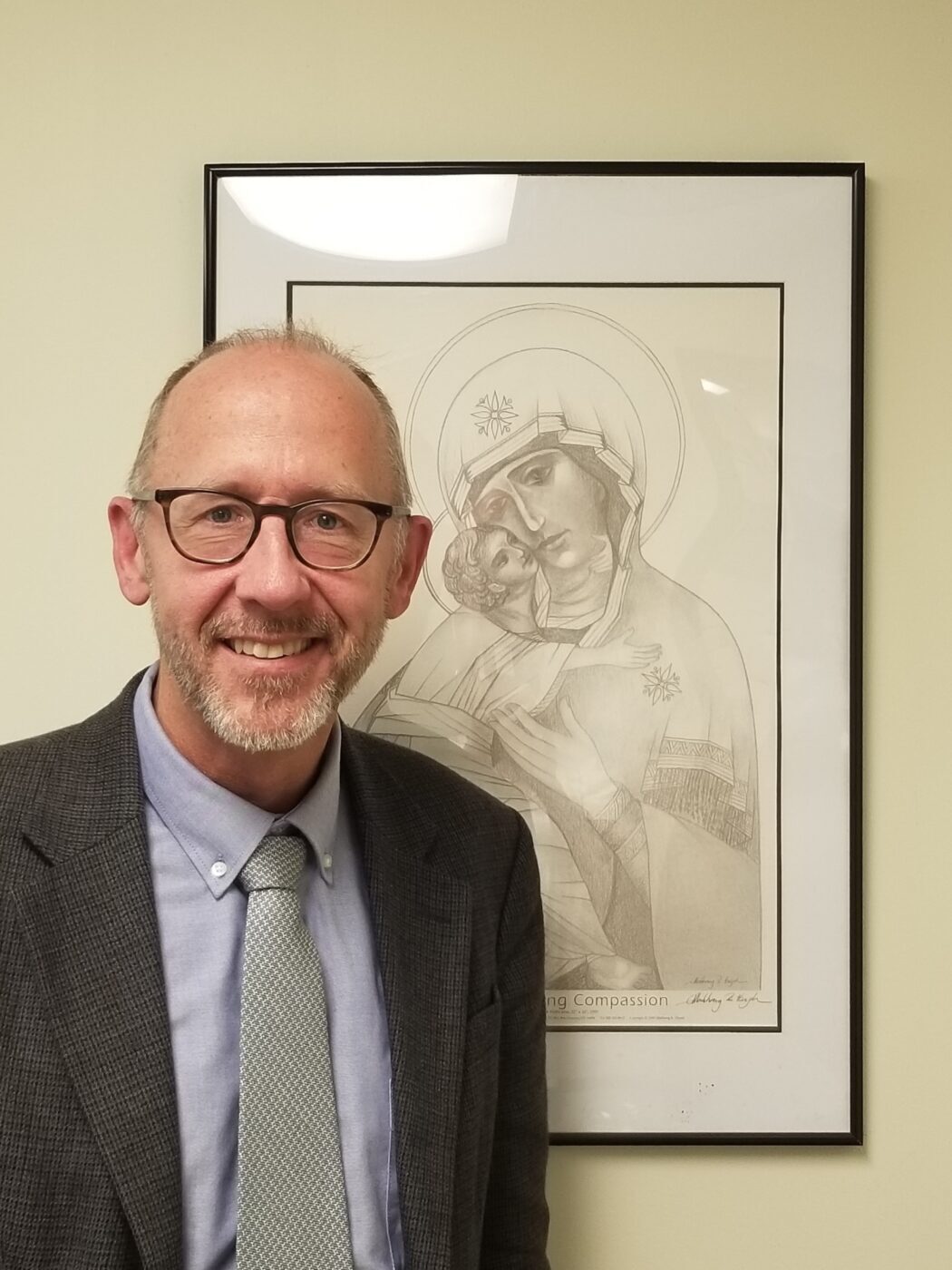Reimagining Catholic Social Teaching for a Local Age
Oct 28, 2025
Mike Sauter, MATS
“If we could think locally, we would do far better than we are doing now. The right local questions and answers will be the right global ones. The Amish question ‘What will this do to our community?’ tends toward the right answer for the world.” – Wendell Berry
During the Spring 2025 semester, it was my good fortune to teach C310 – Catholic Social Teaching at St. Bernard’s. It was my first experience teaching at the graduate level and, after a bit of trepidation, I think I found my groove and was wildly impressed with the dynamism of the conversation of the students in class. I knew there would be at least some students on Zoom, and that was going to be new for me, worrying precisely about how it would affect the back-and-forth in the classroom, but let me just say that it didn’t affect the experience of the classroom much at all. The conversation was dynamic and included auditors as well as for-credit students.
Only a few weeks after the final class, we found out that Robert Francis Prevost would take the name Pope Leo XVI on assuming the Papacy, which of course is significant as we’ve all heard that he took that name, at least partially, as a nod to Pope Leo XIII who is remembered for his intellect and famous encyclical Rerum Novarum (1891). This document, in advocating for the protection of workers’ rights, the right to form labor unions, fair wages and humane working conditions, as well as the balanced approach between unrestrained capitalism and socialism, is famous for laying the foundation for modern Catholic social teaching, and for Pope Leo XIII being seen as the father of modern Catholic social thought. I heard from a number of students weeks after the class ended expressing the shock that the founder of modern Catholic social thought and, by proxy, the journey we had previously all undertaken together was suddenly relevant!
Enter Wendell Berry, the man whose quote is at the top of this blog entry. I’m sure that at least a few of you reading this will have heard of him. He’s famous, in part, for being something of the grandfather of American localism. I taught a course at SUNY Geneseo a number of times that used Berry’s work as a reference point for good writing and sane thinking. For me, he’s something of an American Socrates, as he can’t be reduced to “the Right” or “the Left.” Look him up and be edified.
Now, far be it from me to advise the Pope on anything but, before Pope Leo XIV really gets into updating and adding to Catholic Social Thought, I propose to inhabit my inner Wendell Berry for a few moments and make a plea for Pope Leo XIV to absorb some of the wisdom of his fellow countryman and hopefully address what is a common critique of Catholic Social Thought which is that, coming from Rome and being addressed the whole world, it can be seen as too abstract. Of course, we have the Catholic principal of ‘subsidiarity’ (the principle that matters should be handled by the smallest, lowest, or least centralized competent authority whenever possible), but I’m not alone in thinking that the principle seems to exist more in name than in reality within the main body of Catholic social thought. Coming from Illinois, it seems to me, Pope Leo is uniquely positioned to make central the famous question, “How does it play in Peoria?”
Your Holiness,
In an age where the vast machinery of industry and technology seems to separate us from one another, and from the land that sustains us, I write to suggest that Catholic Social Thought might find renewed strength not in abstraction, but in locality. The principles of justice, solidarity, and the common good are eternal, yet they risk becoming hollow when applied only in the corridors of global finance or distant policymaking. To make these principles vital today, they must be lived—and fought for—at the scale of communities and the land that sustains them.
First, the local parish and diocese can become the center of a network of small, sustainable economies. Food, energy, and labor are not merely commodities; they are moral acts when they nourish real people in real places. Encourage communities to grow their own food, tend their own lands, and care for one another in tangible, daily ways. Teach stewardship of creation not as a metaphor, but as a spiritual discipline rooted in the soil beneath our feet.
Second, the language of Catholic Social Thought for the 21st Century should be grounded in story, not only in doctrine. Tell the stories of farmers, laborers, and families whose lives are entwined with the land. Let their dignity, their care, and their struggles illuminate the moral truths you seek to uphold. Ethics must be tangible to inspire action.
Third, please resist the tyranny of scale. Large institutions and global systems often obscure the human face of justice. Encourage subsidiarity in the truest sense: decisions affecting people should be made as closely as possible to them. A church that nurtures local decision-making and local accountability, where allowable, nurtures moral imagination as well.
Finally, my hope is that you remember that care for the earth and care for people are inseparable. The health of our communities is measured not only in economic output but in the richness of local life, in the fertility of our soils, and in the resilience of our neighbors. To move Catholic Social Thought forward is to remember that theology, like agriculture, thrives in patient, attentive, daily labor. The Church can guide the world not only by distant decree but by rooted example. Let the message of justice and solidarity take shape in each parish, each farm, each local economy—then it will be a message the 21st century can live by.



